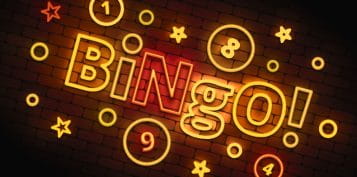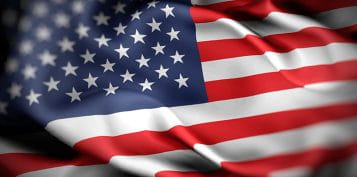History of Gambling in the US – Colonial to Today
The commercial gambling market in the USA is expected to break every existing record with $14.31 billion in nationwide revenue just in the first quarter of 2022. These figures show that gambling is a tremendously popular activity in the US. In this following article, we are about to find out the history of gambling in the US, what stands behind its success, and why Americans love the games of chance so much.
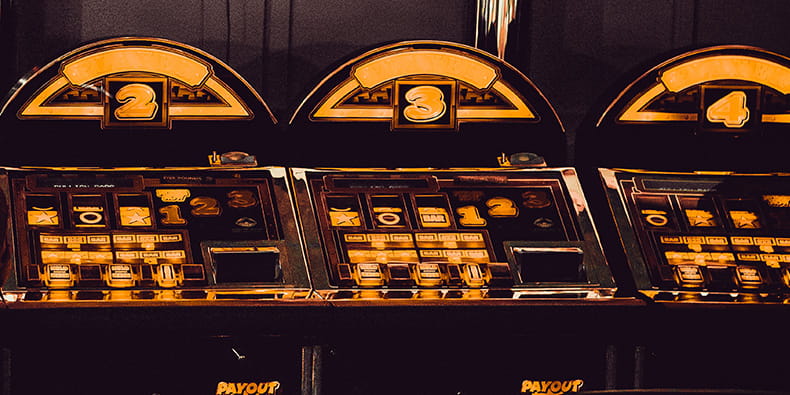
Since the history of gambling in America is a broad topic, we will attempt to divide it into a few significant historical eras and examine how each contributed to the overall picture. Check out the navigation box below to explore the main sections of this overview and find out what to expect until the end.
History of Gambling in America – How It All Started
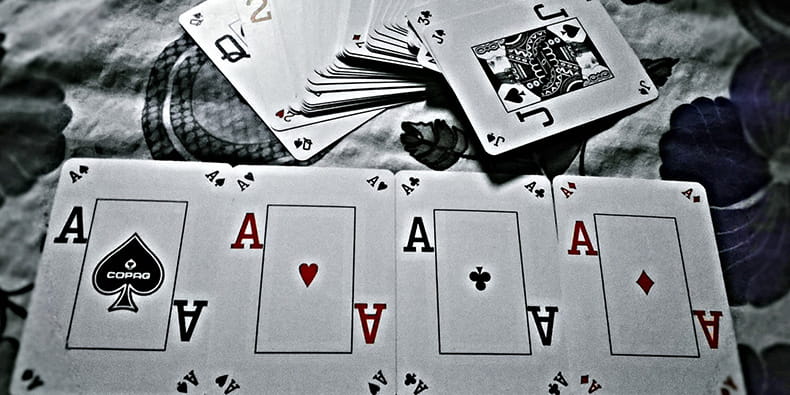
Long before European settlers came to North America, the Cheyenne Indians engaged in gambling through the game of Monushimout. The game involved rolling dice and tossing five plum stones or bones with various carvings into a basket. Bets were placed before the start of the game, while the combination of markings that appeared after a throw determined the winners. The game became a significant part of dice history and was essentially an early form of what we now refer to as slots.
Gambling in Colonial Times – Games of the European Settlers
For as long as we can tell, games of chance have been part of European societies. So, it was no surprise that when Europeans arrived in North America in the 17th century, gambling traditions were not only preserved but also highly supported. Gambling was a well-liked entertainment in the English colonies, mostly centred around card or dice games.
Americans are more prone to take risks, this nation was founded by people who left what was home and came over here. They took a risk to get here. David Schwartz, Historian
Native communities had different attitudes toward gambling. Some approved of it, others not so much, however, there were no significant restrictions. The games listed below were among the most played during this era.
- 🃏 All Fours – traditional English trick-taking card game
- ♦️ Brag – the ancestor of Poker
- ♦️ Whist – the ancestor of Bridge
- 🎱 Jacks (Jackstones) – a traditional ball and stones game
- 🃏 Piquet – skill-rewarding trick-taking card game for two players
- 🎁 Lottery – ticket sale for the chance to win different prizes
- 🐓 Cock-fighting – formal events where gamecocks fight against each other
- 🎲 Backgammon – a dice betting game
- 🏇 Horse racing – bets were placed on the horse who would finish first
One of the most popular gambling activities the colonist brought was horse racing. Because only the very wealthy could manage to import horses for breeding, horse racing came to be called the ‘Sport of Kings’. The first horse racetrack was located in Virginia, and because it was relatively small, horses had to circle the track several times to finish the race. However, this marked the beginning of the history of sports gambling in America.
In 1612 King James I of England created another gambling sensation – the Lottery. Its purpose was to raise money for Jamestown, Virginia, the first British settlement in North America. Later, lotteries were organized all over the 13 colonies to gather money for the construction of towns, roads, hospitals, schools, and other public services.
Early National Period – The Riverboat Casino Era
The early national period started with a wave of evangelical Christianity surging across North American colonies. This period is known as the ‘The Second Great Awakening’ and is marked by the return to conservative moral values. Gambling was considered sinful and an actual danger to society. Moralists tried hard to regulate and even ban gambling through the state legislature. And they succeeded. As a result, betting games were declared illegal for the first time in the history of gambling in the US.

However, the popularity of betting games kept growing, and gamblers found a clever way to avoid the anti-gambling laws. All wagers moved to the Mississippi River waters, which were not regulated and provided a sweet escape from the law. The riverboat casinos quickly became very popular and made New Orleans the nation’s leading gambling center.
Even though the games were initially played with the purpose of keeping the passengers amused during the long journey on the Mississippi River, riverboat casinos quickly became a glamorous stage with loads of entertainment and a significant part of the history of gambling in America.
The American Frontier – Gambling in the Wild West
The American Frontier period is defined by the westward movement of European settlers from their original colonies on the Atlantic coast all the way to the Far West. In the West, gambling was the most popular form of amusement, and almost everyone there engaged in it at some time. All people, from cowboys to business people, enjoyed playing games of chance for fun and profit.
Gaming halls often included a bar, a stage for entertainment, and hotel rooms for visitors. They were often the most beautiful and prominent buildings in any city. The local economy depended heavily on gambling, while some communities even estimated their success by the number of casinos and professional gamblers they had. The Frontier gambler was a charismatic persona associated with risk-taking and living outside the law.
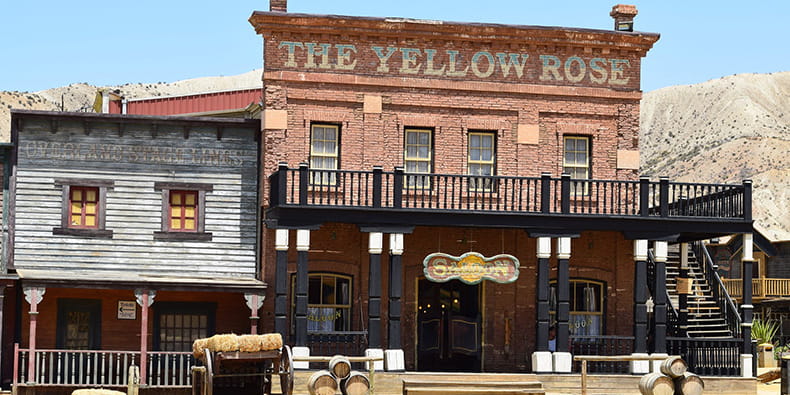
During the California Gold Rush (1848- 1855), many ambitious young prospectors from around the world came to the West in pursuit of wealth. San Francisco quickly became the gambling capital of the US. Casino houses were everywhere, offering a variety of games but also live music, delicious food, and even pretty women to hang out with the gamblers as they played. The history of casino gambling in the US was on the fastest route to a significant victory.
The most popular game in the old West was poker. The game was very different from how it is played today, but it was still a bluffing card game in which you competed against other players. You’ve probably heard of the famous term ‘Dead Man’s Hand’ and the legendary Wild Bill Hickok. He was one of those emblematic frontier gamblers that created history. Will was holding a pair of aces and eights, along with an unknown hole card, when he was murdered at his final game of poker.
History of Gambling in the United States – Modern Days
The 20th century was an era obsessed with moral reforms. Moralists aimed to minimize all social evils, such as gambling and alcohol. The Prohibition Era began in 1920 when the 18th Amendment to the US Constitution banned the manufacture, transportation, and sale of alcohol. Ironically, Nevada was the first state to outlaw casino gambling. But not for long. The state was experiencing a severe recession, just like the rest of the nation, and in 1931 its legislature made casino gambling legal again.
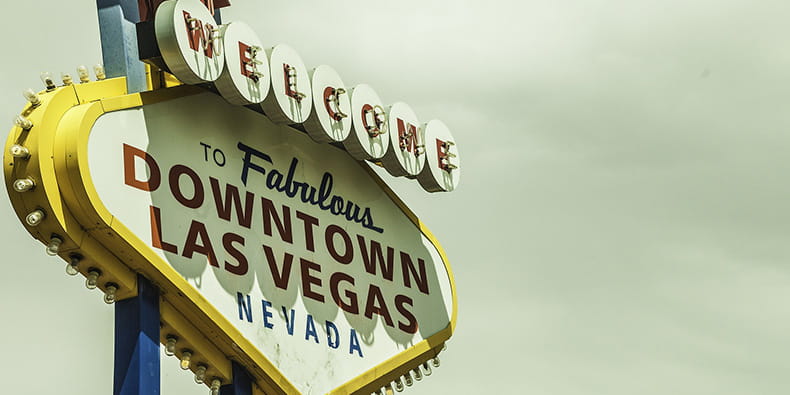
El Rancho Vegas was opened in 1941 as the first big casino on what would later be known as the Las Vegas Strip. Organized crime syndicates became very powerful and wealthy during the Prohibition era, and when it ended in 1933, they shifted their attention to gambling. Las Vegas as we know it today was built thanks to a long list of Las Vegas Mobsters. Corporations and ethical investors also started to make significant investments in casino hotels in Las Vegas and other state regions.
The year of 1976 marks another staple in the history of gambling in the US. This was when the US Commission released the National Policy final report on gambling. The Commission recommended state governments contemplating the legalization of gambling and concluded that each state should set gambling policies without interference from the federal government. The first commercial casino outside of Nevada opened in Atlantic City, New Jersey, in 1978. By the mid-1990s, these were the nine additional states to legalize casino gambling:
- 📍 Colorado – (1990)
- 📍 Illinois - (1990)
- 📍 Indiana- (1993)
- 📍 Iowa – (1989)
- 📍 Louisiana – (1991)
- 📍 Michigan – (1996)
- 📍 Missisipi – (1990)
- 📍 Missouri – (1993)
- 📍 South Dakota – (1989)
US Gambling Categories and Industry Statistics
Currently, the US casino industry is worth more than $261 billion and supports 1.8 million jobs nationwide. There were more than 878,000 electronic gaming devices installed at commercial and tribal casinos for 2021, while the overall number of land-based casinos keeps growing each year. As an organization with deep knowledge of the history of gambling in America, the AGA, breaks down gambling into the following categories:
| 🃏 Card Rooms | gaming establishments that exclusively offer card games – public or private |
| 🏨 Commercial Casinos | gambling facilities that offer various games of chance for real money |
| ❤️ Charitable Games | Lorem ipsum |
| 🍀 Bingo | a game played with pre-bought tickets which have a grid of numbers on them; players mark off the numbers as they are called and hope to complete a winning pattern or a line |
| 🏕️ Tribal casinos | a game of chance in which a player makes predictions about the outcome of a sporting event and places a bet; also known as sports betting |
| 🏆 Legal bookmaking | a game of chance in which a player makes predictions about the outcome of a sporting event and places a bet; also known as sports betting |
| 🎁 Lotteries | a game based on a system of pre-selling tickets, drawing numbers, and awarding players who bought the winning ticket number |
| 💹 Parimutuel wagering | a betting technique in which all bets of a specific type are made together in a pool – also known as pool betting |
| ⌛ Advance-deposit wagering | form of wagering on the results of horse races where players must first fund their accounts in order to place bets |
Since each state is permitted to regulate or outlaw gambling within its borders, there are significant restrictions on the interstate and online gambling fields. As of 2020, Nevada and Louisiana are the only states where casino-style gambling is legal statewide. All other states that permit casino-style gambling limit it to tiny geographic areas or Native American reservations, such as Atlantic City, New Jersey, and South Dakota.
Online Gambling in the USA – State Regulations
The phrase ‘online casino’ began to gain widespread global acceptance as technology took over today’s modern society. In 1994, Microgaming was the first company to develop fully functional gambling software, while Cryptologic provided the first encryption protocols. The combination of these two pillars made it clear that the history of gambling in the United States will take an important turn toward online gambling platforms.
Just two years later, in 1996, InterCasino was the first online casino to launch in the USA. Of course, its graphics and interface were not so great-looking or user-friendly as today’s best US online casinos, but it was the first big step into a new digital era. The online gambling industry started to enjoy massive growth in 1998, leading to a dynamic wave of changing law regulations.

As a result, online gambling in the USA has been more firmly regulated than land-based casino establishments. The US gambling law regulations have a long and very dynamic history. They are strict but, at the same can be a bit confusing for the player. In fact, as of now, there are just 7 states which fully permit online casinos on their territory: Connecticut, Delaware, Michigan, Nevada, New Jersey, Pennsylvania, and West Virginia.
Popular Questions About the Gambling History in the US
Before we conclude our blog on the history of gambling in the US, we would like to address some of your most frequently asked questions regarding that topic. If you want the in-detail answer, please follow the featured jump link.
Similar Articles
